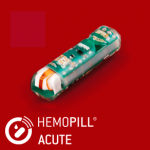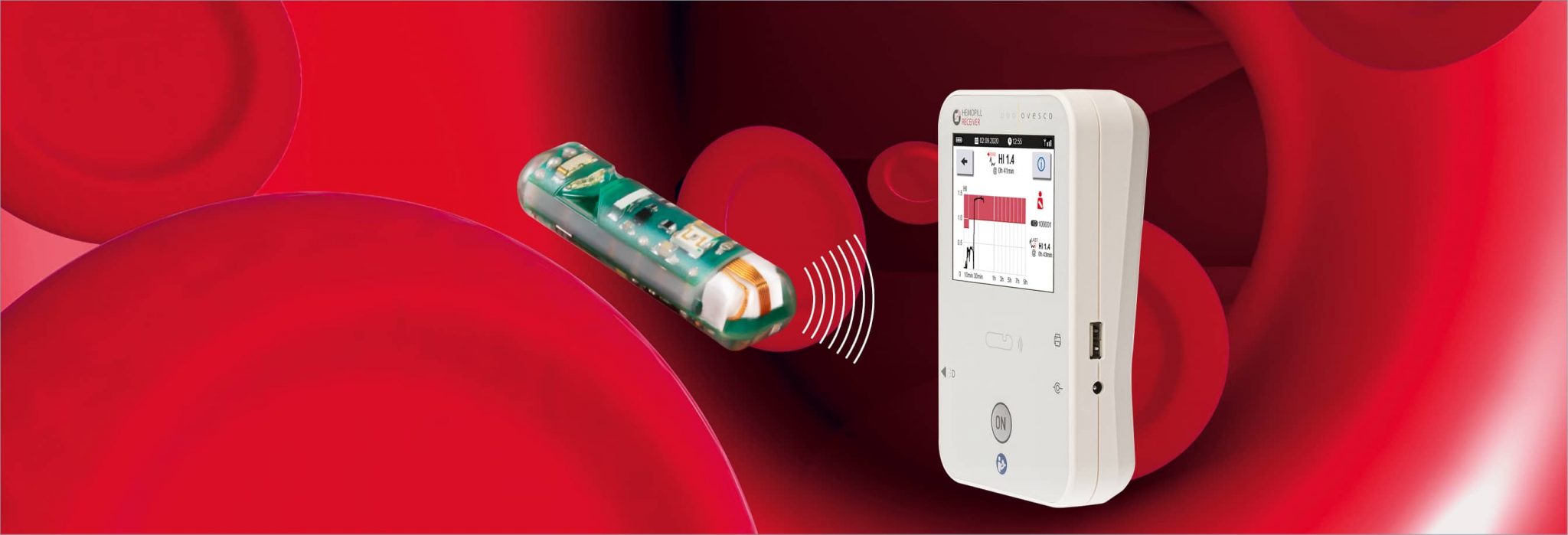The use of the HemoPill acute demonstrated its ability to reliably detect or exclude bleeding in the upper gastrointestinal tract.
Between July 2019 and March 2020, 12 hospitals from Germany and Switzerland used the HemoPill acute in 61 patients and analysed it retrospectively.
Indications for application were the clinical suspicion of upper gastrointestinal bleeding (UGIB), small bowel bleeding or recurrent bleeding after endoscopic hemostasis. Primary endpoints were technical success and detection/exclusion of bleeding. Secondary endpoints included adverse events and impact on clinical outcome.
The capsule was used in
- 45 (73%) patients with suspected UGIB
- 12 (20%) patients with suspected small bowel bleeding after negative esophagogastroduodenoscopy and tarry stool present
- 4 (7%) patients to exclude rebleeding.
The technical success was 98%. 35/60 (58%) cases had a positive capsule finding (bleeding was detected), of which 20/35 (57%) had subsequent endoscopy showing bleeding. None of the 25 patients with a negative HemoPill acute finding bled again or showed signs of bleeding on further endoscopic examination. In addition, a negative result had an impact on further clinical management in 18/25 (72%) cases. In these 18 patients, emergency endoscopy was completely avoided in 10 cases and subsequent endoscopy in the remaining 8 cases. No serious adverse events occurred.
The authors evaluated the HemoPill acute as a promising tool for real-time detection of UGIB. Thus, on the one hand, it helps in risk stratification of patients, and on the other hand, it also detects the absence of fresh blood in hemodynamically stable patients who may be candidates for outpatient rather than inpatient treatment.
Telemetric capsule-based upper gastrointestinal tract – blood detection – first multicentric experience
T. Brunk, A. Schmidt, J. Hochberger, E. Wedi, B. Meier, G. Braun, F. Neser, M. Schneider, J. Kandler, P. Bauerfeind, M. Repp, V. Weingart, M. Brand, K. Caca, A. Wannhoff, H. Messmann, S. Karpynec, I. Kubisch, J. Albert, H. Neuhaus, L. Schmitz, H.-D. Allescher, A. Meining, A. Kuellmer
Minimally Invasive Therapy & Allied Technologies (2021), doi: https://doi.org/10.1080/13645706.2021.1954534
 |
 |


 English
English  Français
Français 